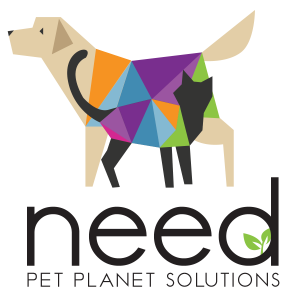Dr. Al Townshend
The lifestyle choices we make in the way we live our lives and the lives of our pets can have a powerful impact on the health and well-being of every member of the family. Making the best lifestyle choices for ourselves and our pets is essential in reducing risk and preventing many health problems, including cancer.
Smoking and the use of other tobacco products is one of the leading causes of cancer in humans. Secondary smoke exposure is as dangerous to nonsmokers and pets in the same household.
Sleep is essential to allow time for the body to rejuvenate, and the same is true for our pets. A human’s lifestyle that prevents a pet from getting adequate sleep stresses both the body and mind. It also reduces the ability of the immune system to protect the body.
Stress is a critical factor for both humans and their pets. It is essential to understand that pets are very perceptive of their Guardian’s emotional and physical state. If the pet senses their Guardians are stressed, it becomes stressful for the pet too.
Time devoted to the pet relieves stress for both, reassures the pet, improves the human-animal bond, and is known to enhance the health for both the Guardian and the pet.
Exposure to household toxins
- Furniture treatments such as flame retardants, stain and water repellents, and antimicrobial treatments have been incriminated in multiple health concerns, including cancer.
- Outdoor time can expose pets to various herbicides, insecticides, and pesticides, some of which have been incriminated in disrupting normal hormone levels, depressing the immune system, and causing cancer in humans and some animals.
- Household cleaners with heavy concentrations of ingredients such as bleach, ammonia, chlorine, glycol ethers, or formaldehyde can put pets at risk for cancer.
Lifestyle Choices We Make for Our Pets
A Safe environment that minimizes air, water, and ground pollution can make a significant difference in the long-term health of a pet and the Guardian. Industrial pollution that has been lurking in the ground or water, air pollution from coal furnaces are all known to increase the risk of cancer development.
Vaccinations are an essential part of maintaining the health of a pet and preventing many diseases. Vaccines can cause cancer in a small number of pets. Feline sarcomas are the most common; however, dogs can get them too. Vaccination schedules should always be discussed with the veterinarian to avoid over-vaccination and increased risk.
Spay or neutering of both dogs and cats can reduce the risk of some forms of cancer, such as mammary tumors and testicular cancer. There is a slight increase in some forms of cancer (hemangiosarcoma and osteosarcoma) in spayed female dogs.
When considering whether to neuter a pet, Guardians should understand that there is an increased risk of obesity. Excess weight is known to increase the risk of many diseases associated with age, including cancer.
The diet chosen for a pet can contain hidden substances that increase the risk of cancer. Selecting a protein-focused, biologically appropriate, and natural recipe is essential in avoiding chemical substances and other toxins known to increase the risk of cancer.
Much more to come in another article specifically dedicated to diet and cancer.
Exercise is a critical health factor for both the pet and their Guardian. Lack of exercise encourages weight issues and obesity, which is known to encourage many diseases, including cancer.
The lifestyles we chose for ourselves and the lifestyle we develop for our pets can significantly impact reducing the risk of cancer and many other conditions that slow the aging process and encourage a long and happy life for our pets and ourselves.
____
Additional Resources
You Asked: Can My Couch Give Me Cancer?



